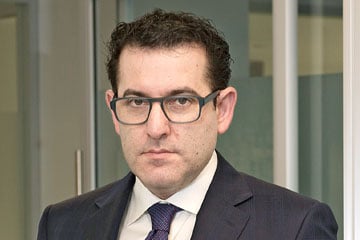
An Ontario judge has awarded carriage of a proposed class action against bread sellers for an alleged price-fixing scheme to a consortium led by Strosberg Sasso Sutts LLP.

An Ontario judge has awarded carriage of a proposed class action against bread sellers for an alleged price-fixing scheme to a consortium led by Strosberg Sasso Sutts LLP.
Two different groups of law firms were vying to represent potential class members in the proposed lawsuit, brought against Loblaw, Sobeys, Metro and other Canadian retailers.
The group led by Strosberg was made up of four law firms that have filed actions in five different provinces and the Federal Court. Sotos LLP and Siskinds LLP led the other consortium, which only launched an Ontario action.
Ontario Superior Court Justice Ed Morgan found that the Strosberg group’s approach would be in the best interests of a potential national class and fairer to the defendants, despite the fact the defendants favoured the Sotos group.
“The Strosberg approach to the multijurisdictional problem is to accomplish in advance what the Sotos Team says that it will eventually do if awarded carriage,” Morgan wrote in David v. Loblaw; Breckon v. Loblaw.
“That is, in forming the Strosberg Consortium it has negotiated with counsel for the other existing actions.”
Lawyers say the decision could have implications for multi-jurisdictional litigation, which is a hot topic in the plaintiff class action bar.
While Strosberg had brought together firms that had started actions in different jurisdictions, Sotos said it would enter negotiations with firms that brought actions in other provinces after it was awarded carriage.
The Sotos consortium had agreed to provide an undertaking to the defendants that it would not start actions in other jurisdictions. The defendants argued this undertaking would be a way of containing the multi-jurisdictional nature of the matter and that the Strosberg group’s refusal to provide such an undertaking should count against them in the carriage battle.
Morgan found that the undertaking had prevented the Sotos group from being proactive in other jurisdictions and that it had “ham-strung” the consortium in a way Strosberg had not.
The judge also found that the use of such an undertaking by the defendants, who favoured the Sotos group, was unusual.
“I take defendants’ counsel at their word, but the embrace of a mechanism that is unlikely to aid their clients here is an unusual approach,” Morgan said. “A more cynical person might think that the defendants simply prefer the more passive of the two competing class counsel groups over the more proactive group.”
Jay Strosberg, of Strosberg Sasso Sutts LLP, says the undertaking would not achieve the objective of limiting multi-jurisdictional litigation, as Merchant Law Group LLP, which was not part of either consortium, had launched actions in several western provinces.
He says that if the Strosberg consortium had agreed to the undertaking, it would shut down its own actions in those provinces but would leave Merchant’s actions.
“It didn’t achieve what they wanted,” he says.
Morgan noted that Sotos could not compete with Merchant in other provinces because of the undertaking, whereas Strosberg’s ability to compete would help ensure uniformity of actions.
David Sterns, a partner with Sotos LLP, however, says the decision means firms that take the approach of filing in the jurisdiction in which they intend to move forward are going to be at a disadvantage to those that file in multiple jurisdictions.
“What this means is that the arms race of multiple jurisdictional filings is back on,” he says.
Margaret Waddell, of Waddell Phillips PC, says she finds it troubling that the decision seems to suggest that starting actions in multiple jurisdictions is seen as a good thing.
She says this is completely contrary to what other decisions have said for years, which is that it is an abuse of process to start actions in jurisdictions in which one does not intend to pursue.
“For the judge to weigh that as a plus I find troubling and concerning, when it’s purely strategic and has been frowned on repeatedly,” says Waddell, who was not involved in the case.
She says the courts should consider both the undertaking not to start competing actions and Strosberg’s actions to bring other firms into the fold that have already started actions as positive factors. The primary goal in these cases should be to avoid the multiplicity of actions, she says.
Another factor at issue was the fact that the Sotos group included the claims of potential class members called umbrella purchasers in its action. The Strosberg group did not include umbrella purchasers in its action.
Umbrella purchasers are potential class members who did not purchase bread directly from the defendants but suffered higher prices because of the alleged price-fixing scheme.
The issue of whether umbrella purchasers have a cause of action is making its way up through the courts at the moment, and it is likely headed to the Supreme Court of Canada as judges in different provinces have ruled differently on the topic.
The Strosberg consortium argued that including umbrella purchasers in the action would be a “problematic distraction” that could potentially threaten to derail the case with a challenge from the defendants. The Sotos group countered by saying not including umbrella purchasers in the action would be problematic as it would cause an obstacle when counsel inevitably tries to add them later.
Given the unsettled nature of the law around the issue, Morgan found that the inclusion or exclusion of umbrella purchasers was a neutral factor and did not favour either group on the issue.
Wadell says this finding is troubling as she thinks the interests of umbrella purchasers should not have been excluded and should have been given more consideration by the court.
Lawyers representing the defendants in the proposed class action declined to comment.
Sterns said the Sotos consortium had not decided yet whether it would look to appeal the carriage decision.